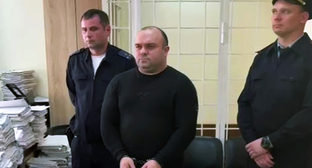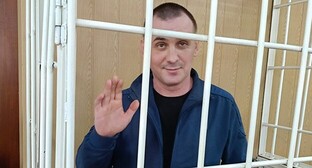09 October 2008, 13:15
European Court finds Russia unable to protect citizens from AP landmines in Chechnya
Today, the European Court for Human Rights has passed its decision on the case "Albekov et al versus Russian Federation" and recognized Russia guilty of inability to enforce its liabilities to defend Russian citizens in Chechnya, who perish from antipersonnel (AP) landmines.
The message of the Human Rights Centre (HRC) "Memorial", which has arrived to the "Caucasian Knot", runs that the Court has awarded compensation to relatives of perished Vakhazhi Albekov and Khazain Minkailov in the sum of 35,000 euros each, and to relatives of Nokha Uspanov, who was crippled and subsequently disappeared in a clean-up, 20,000 euros.
Peaceful residents Vakhazhi Albekov and Khazain Minkailov were killed on October 23, 2000, by explosions of AP landmines planted into the territory around Russian military unit close to Akhkinchu-Barzoy village in Chechnya; near the same time, Nokha Uspanov was crippled.
Relatives of the casualties and victims addressed militaries for help in searching those injured by mines, however, only on the following day they sent sappers with minefield maps to hold searches.
The European Court has not found it necessary to establish the fact that the mines had been planted by Russian militaries, since in any case the state did not deny that they knew where the landmines had been planted. The Court has concluded that Russian authorities had been obliged to protect villagers from the risk to get wounded or killed by AD landmines.
The Court has also noted that the first official investigation of the incident was initiated only almost 4 years later, already after the case had been handed over by the European Court to Russian Government for giving answer to the complaint.





Комментирование через Кавказский узел